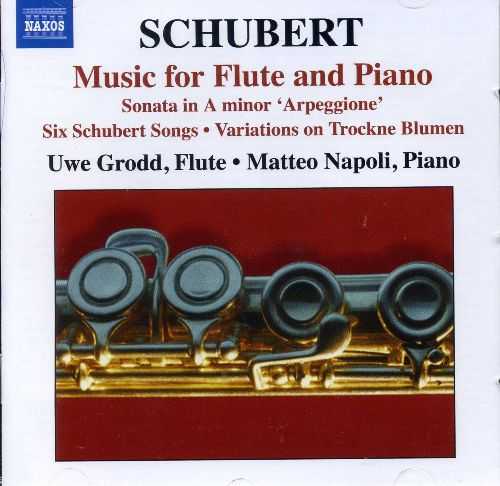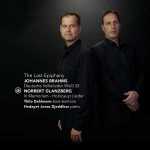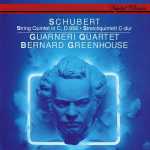
Composer: Franz Schubert
Performer: Uwe Grodd, Matteo Napoli
Audio CD
SPARS Code: DDD
Number of Discs: 1
Format: FLAC (tracks)
Label: Naxos
Size: 289 MB
Recovery: +3%
Scan: yes
01. Arpeggione Sonata in A minor, D. 821 (arr. U. Grodd for flute): I. Allegro moderato
02. Arpeggione Sonata in A minor, D. 821 (arr. U. Grodd for flute): II. Adagio
03. Arpeggione Sonata in A minor, D. 821 (arr. U. Grodd for flute): III. Allegretto
04. Winterreise, Op. 89, D. 911 (excerpts) (arr. T. Boehm for flute): No. 1. Gute Nacht
05. Winterreise, Op. 89, D. 911 (excerpts) (arr. T. Boehm for flute): No. 5. Der Lindenbaum
06. Schwanengesang, D. 957 (excerpts) (arr. T. Boehm for flute and piano): No. 10. Das Fischermadchen
07. Schwanengesang, D. 957 (excerpts) (arr. T. Boehm for flute and piano): No. 4. Standchen
08. Schwanengesang, D. 957 (excerpts) (arr. T. Boehm for flute and piano): No. 12. Am Meer
09. Schwanengesang, D. 957 (excerpts) (arr. T. Boehm for flute and piano): No. 14. Die Taubenpost
10. Introduction and Variations on Trockne Blumen from Die schone Mullerin, Op. 160, D. 802: Introduction: Andante
11. Introduction and Variations on Trockne Blumen from Die schone Mullerin, Op. 160, D. 802: Theme: Andantino
12. Introduction and Variations on Trockne Blumen from Die schone Mullerin, Op. 160, D. 802: Variation 1
13. Introduction and Variations on Trockne Blumen from Die schone Mullerin, Op. 160, D. 802: Variation 2
14. Introduction and Variations on Trockne Blumen from Die schone Mullerin, Op. 160, D. 802: Variation 3
15. Introduction and Variations on Trockne Blumen from Die schone Mullerin, Op. 160, D. 802: Variation 4
16. Introduction and Variations on Trockne Blumen from Die schone Mullerin, Op. 160, D. 802: Variation 5
17. Introduction and Variations on Trockne Blumen from Die schone Mullerin, Op. 160, D. 802: Variation 6
18. Introduction and Variations on Trockne Blumen from Die schone Mullerin, Op. 160, D. 802: Variation 7: Allegro
Cannabich deserves to be heard.
This CD brings alive music that even most well-trained and scholarly hip musicians have probably only read about in textbooks. It is no surprise that Mozart had great respect for Cannabich after hearing these symphonies. We should all thank Naxos (loudly) for making these works available, and the Nicolaus Esterhazy Sinfonia for a delightful set of performances: tempi are appropriate, moving along, but allowing the music to breathe (minuets actually sound danceable), and phrasing is well-nuanced (probably because of good tempi).



